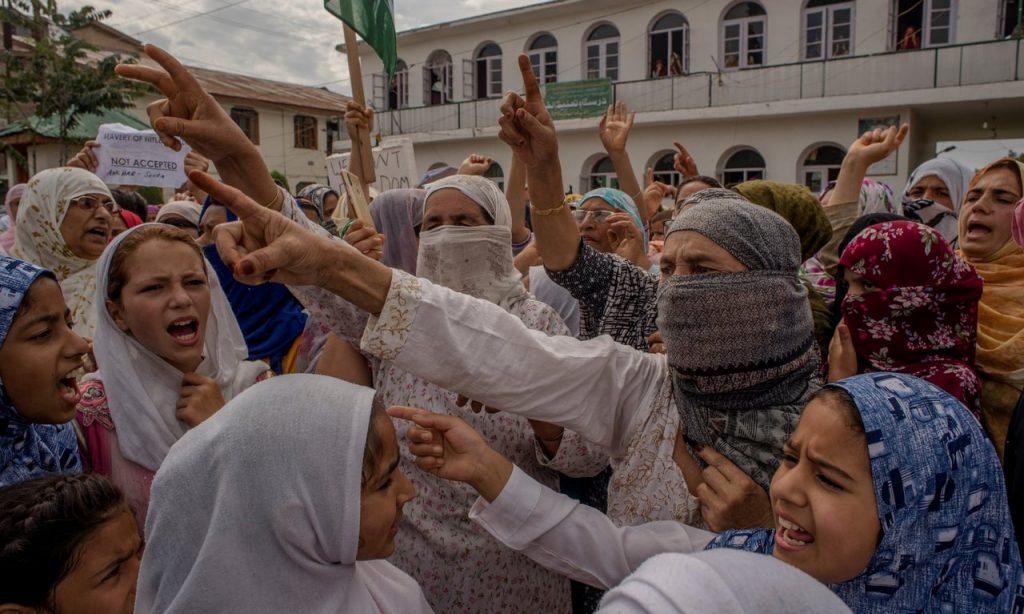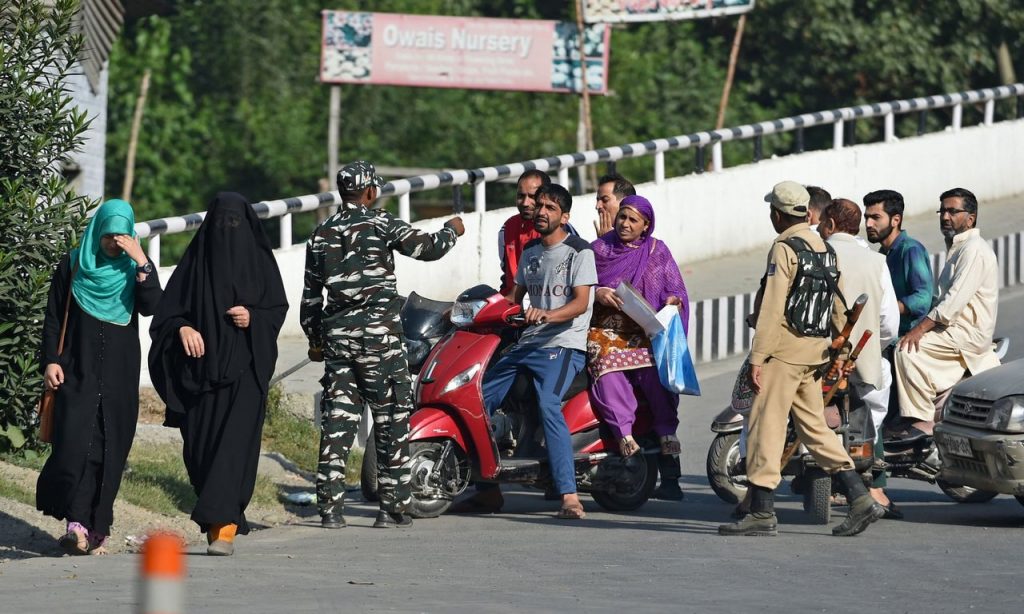Kashmir is under siege. Up to 10,000 people have been victims of enforced disappearance, including my son Javaid

The Eid this year was like no other. We could not even offer the obligatory sacrifice because of the total siege by India of Kashmir.
When my son Yasir went to fetch bread in the morning and didn’t return promptly, I started pacing with worry outside the house. What if the security forces manning every corner had roughed him up, or even worse? My fear is the fear of every single person living in shock in Kashmir and wondering “What next?” Eventually, he returned, explaining that the delay was due to long queues at the only bakery open in the entire area. But unlike Yasir, my son Javaid has never returned.
Nothing can make you used to the terror of nocturnal raids by security forces. It was 18 August 1990, and we were living in Srinagar, at the height of an uprising against the Indian occupation. In the early hours of the morning, a neighbor came to tell us that my son Javaid, only 16 years old, had been taken away by the National Security Guard – one of many paramilitary forces operated by the Indian government in the valley. At first, I wasn’t fearful, as I knew this was a case of mistaken identity. My son had never quarreled with anyone, let alone been part of any armed uprising.
As the day passed, my anxiety increased as efforts to trace him failed. I ran from one police station to another, from one known torture center to another detention camp to be told, “Do not worry, he will be released”. He did not return.
From 1997 until today, Javaid’s file, along with those of all Kashmiri victims of armed forces in the India-administered region, has remained secret. Not a single permission has been granted by the central government to prosecute any official facing allegations of grave human rights abuses.
They threatened me, they tried to buy me, they suggested I was a bad mother for neglecting my other children and for taking my infant daughter with me to wait endlessly in front of police stations and the courts, they spread rumors about my motives, they harassed me, they raised false charges against me – they wanted me to give up. But I never stopped asking “Where is my son?”
Between 8,000 and 10,000 Kashmiris have been victims of enforced disappearance. I was never a political person but the fire of my own suffering and the anguish of other parents prompted me to start the Association of Parents of Disappeared Persons (APDP). I started visiting the families of the disappeared in every part of Kashmir to listen, offer support and encourage action.
Ours is not a conventional organization of activists but a community of sufferers who share the pain, support each other and live with the hope that our disappeared children will be returned. From informal gatherings to hunger strikes in public, from vigils in parks to seminars at educational institutions in both Kashmir and India and visits to universities and the UN, we are seeking the answer to our questions – Where have you taken our sons? Where are our husbands?
I am not a leader, I am a sufferer. I will not give up the hope of seeing my son, who has been disappeared for 29 years. But this is not my struggle alone. If the government assured me that Javaid would return today, I would say no. First, bring back the disappeared sons and husbands of other Kashmiris. Bring Javaid last.

We do not trust India. The oppression that has been inflicted upon us since the August lockdown of the region is not new – and yet there is something very different this time since the loss of autonomy for the state of Jammu and Kashmir. We have no way of communicating with each other, we have no way of knowing who is ill, who has been picked up by security forces, who has been injured or killed. There is no livelihood for the many who cannot go out to work. Many of the members of the APDP are poor and elderly women and we provide regular medical help to them: we no longer know what their needs are and whether they have essential medicines or not. We will die and no one will know; we all are in a collective prison.
The only term that comes to my mind is trath – loosely translated as a calamity. This is a calamity not of visible violence or even of fear because those who have justice and right on their side do not fear. It is one of terror: the enforced silence in Kashmir today makes my heart palpitate in the same way as the terror of knowing since August 1990 that my son Javaid was a victim of enforced disappearance.
Every other day in Kashmir is an anniversary of a massacre or state violence or betrayal by India of its promises. We have lived through many nights of terror and days of oppression. We speak out, but the question is whether civil society in India and the international community ignore us or listen?
Every year, the families of APDP come together on 30 August, the UN Day of the Victims of Enforced Disappearance. This is our way of reassuring each other that we are not alone in our grief. Yet this year we have been strangled, and there was no coming together because, through its siege, India has denied us even the right to mourn.
I want every single mother in Kashmir and other places whose sons have been forcibly disappeared to get answers to the questions that haunt them: where is my child? Where did you take them? Bring the dead body if you killed them – but for God’s sake bring them back.
By: Parveena Ahangar is a human rights defender and chair of the Association of Parents of Disappeared Persons in Indian-administered Kashmir.
 Alghadeer TV Alghadeer TV
Alghadeer TV Alghadeer TV
